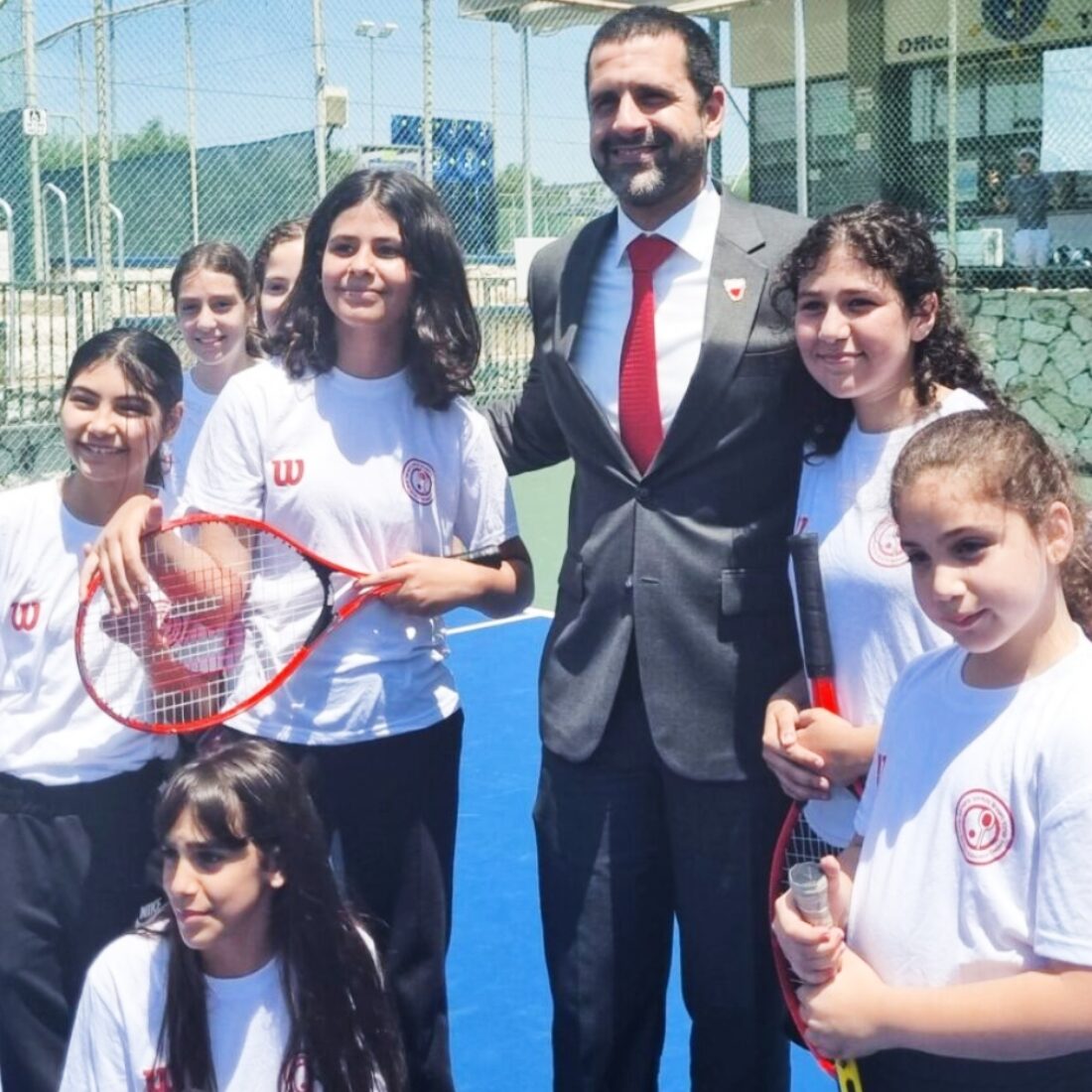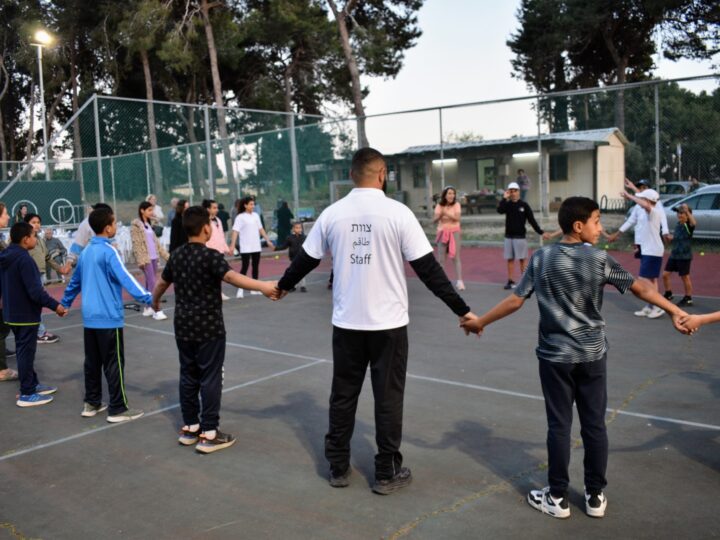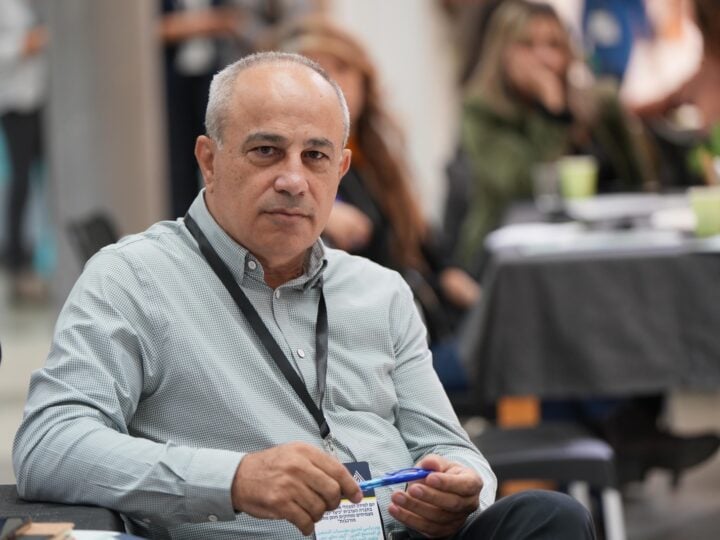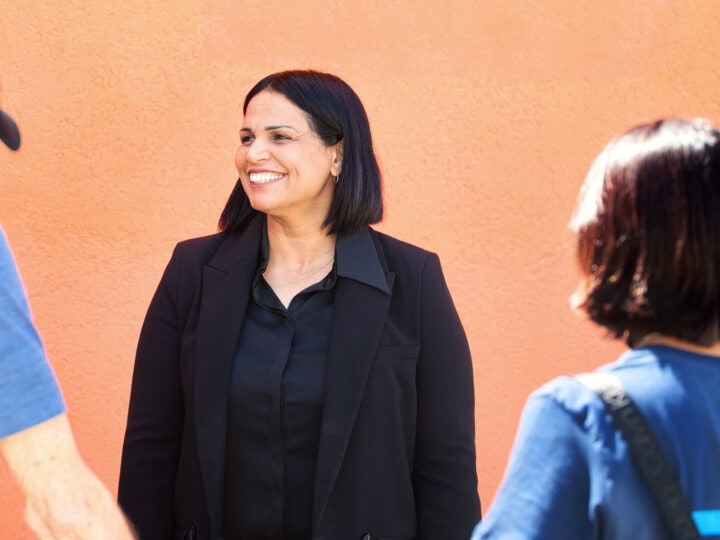“We want to build a bridge between the cultures in Israel and between Israel and our cousins in the Middle East,” says Erez Vider, CEO of Israel Tennis & Education Centers (ITEC), a 50-year-old foundation that uses the tennis court as a venue where young Israelis from all backgrounds can meet and engage in a spirit of respect and friendship.
ITEC has about 6,000 children aged six to 18 playing at 17 centers across Israel, including Arab Muslims, Christians and Druze, Orthodox Jews and more. The foundation also has specific programs for girls empowerment, special needs, at-risk youth, and children struggling with weight issues.
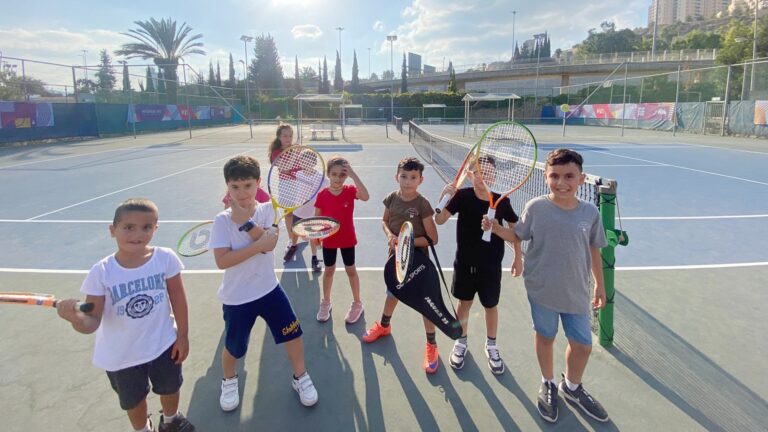
The Abraham Accords signed in 2020 among Israel and the United Arab Emirates, Bahrain, Morocco and Sudan led to the foundation’s Abraham’s Bridge initiative to spread “tennis diplomacy” more intensively in Israel’s Arab, Bedouin, Druze and mixed Jewish-Arab cities — and to Abraham Accords neighbors.
Last October, an ITEC delegation traveled to Bahrain to discuss possible areas of collaboration with the Bahraini Tennis Association. They decided to begin with coaching development.
A good kind of chutzpah
Alam Ibrahem, the Druze manager of ITEC’s Sajur Center and director of Abraham’s Bridge, tells ISRAEL21c that “we opened the door with our Israeli chutzpah, a good kind of chutzpah, plus our vision of tennis diplomacy.”
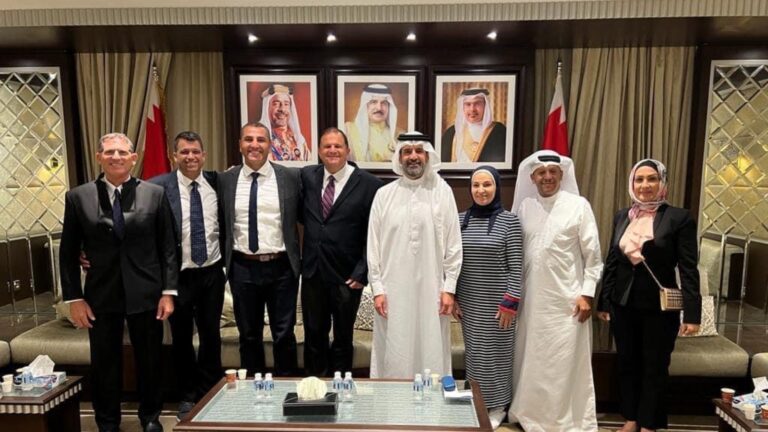
The Bahrainis peppered him with questions about Arab-Jewish relations in Israel.
“Unfortunately, Arab countries often see Israel as a lion waiting to pounce and when they saw me, an Arab, in the delegation, it was strange to them,” Ibrahem says.
“And I said to them, ‘The fact is, I’m here.’ My presence was a beautiful way of demonstrating the strength of democracy in Israel. I was happy to share the vision of this amazing organization, which has a positive influence on Arab children and helps them realize the Israeli dream.”
That visit was followed up recently by a weeklong trip to Bahrain by Ronen Morali, head of ITEC’s Tennis Lovers programs and Israel’s Federation Cup coach, and two top ITEC players.
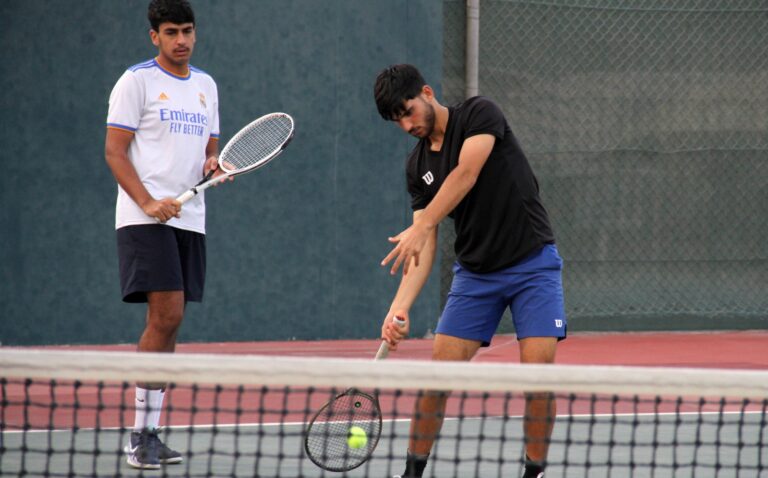
They taught the ITEC approach to nine local coaches, some born in Bahrain and others born in Tunisia, Romania, Philippines and Yemen. Then they coached some promising young Bahraini tennis players.
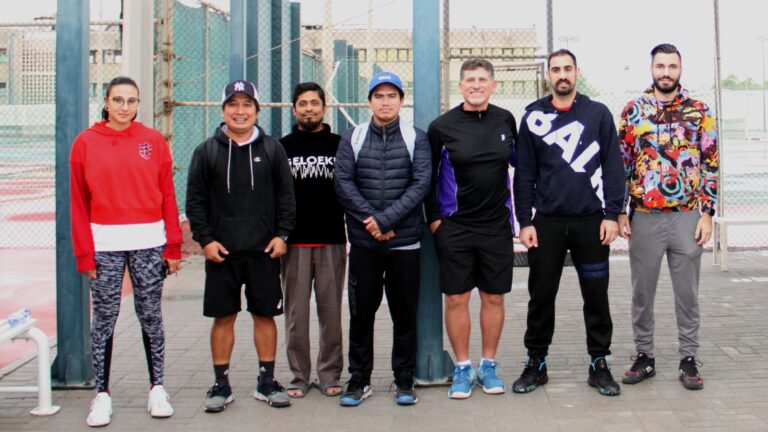
“At the end of the day, this is about people,” says Vider, noting that Morali also has taken ITEC’s tennis diplomacy to South Africa and China.
“We believe when children are put together with other children on the court, they don’t see race, they don’t see religion; they just see someone they want to beat at tennis. And that’s beautiful because everything else disappears.”
The adversary is the tennis ball
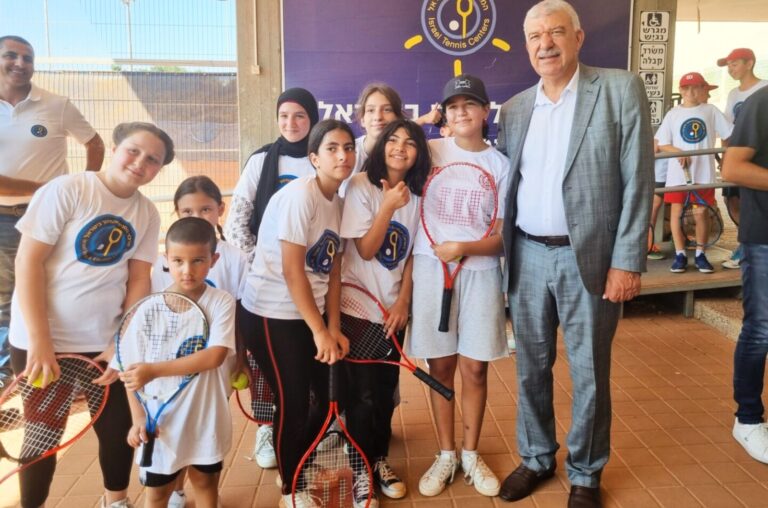
ITEC hopes to extend Abraham’s Bridge to Morocco and the UAE next, working with ambassadors in each country.
“The larger strategic concept of tennis diplomacy has created paths within Israel, and a cross-border path, that we didn’t think possible,” ITEC board member Dan Diker tells ISRAEL21c.
Diker says that in May 2021, in the midst of an Israeli-Gaza conflict that spilled over into violence in many mixed cities in Israel, the entire city council of Taibe – Israel’s second-largest Arab city – came to ITEC’s Ramat Hasharon headquarters for a day of cross-cultural exchange. The following February, Taibe became the location of ITEC’s 17th center.
“This showed us what might be possible beyond the borders of Israel, and sure enough the Bahraini ambassador came to meet with us at the center at Erez’s invitation,” Diker says.
He feels tennis is a more effective catalyst for diplomacy than are team sports.
“Tennis is a statement of shared excellence on the court in which your adversary is the tennis ball and not the person on the other end of the court. You can forge real friendships on the tennis court.”
Ibrahem sums up, “The bridge that we are building between Israel and Bahrain, and God willing with other countries, is a harbinger of peace among all of us.”
For more information, click here.




